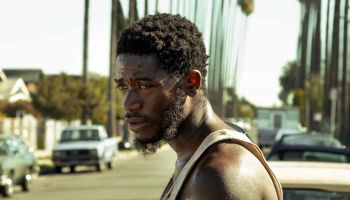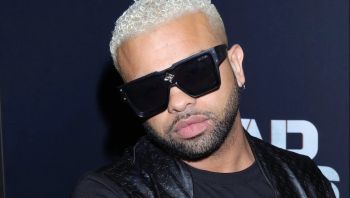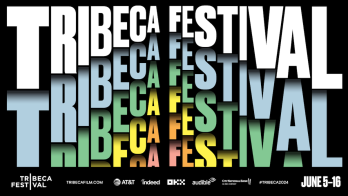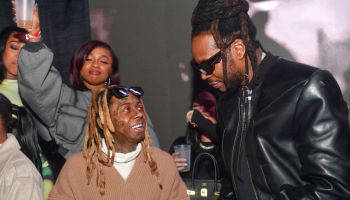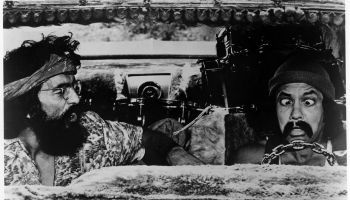The release of Get Out‘s alternate ending has first-time director Jordan Peele trending again. The movie has raked in over $230 million and was universally loved by critics. It’s massive success has given hope to the millennial generation of artists and audiences who have proven to want more authenticity and less special effects.
A lifetime of code-switching gave the first-time director of Get Out a uniquely specific point-of-view, and we can only hope that it will both open doors and set an example of excellence for artists of all cultures and disciplines moving forward.
I’m an amateur filmmaker. I use the money I make working to fund my own film projects in my own time. I don’t seek to make a living off of it. I had an interesting talk this weekend with a friend who does make his money in the film industry. “I can’t front like I’m some big shot,” he says, But I know he gets paid to write for a horror show on cable TV — an obvious sign he’s headed down the right career path. We both have passion projects we’re hoping to make. His about vampires in the Bronx, mine about Black superheroes in the suburbs. After seeing “Get Out” and clocking its box office success, we both feel more empowered than ever to bring our stories to the masses without having to compromise for mainstream acceptance.
“For so long in Black movies, we have been relegated to this idea that our movies have to be about the struggle,” said my friend, whom we’ll call Richard. “And then we get a lot of movies that are super urban and set in the hood. And that’s also very important to the Black experience, but it’s not all the Black experience is.”
Get Out struck a chord because it exposed a more universal Black experience. It pushed all the right buttons because it didn’t try to push them all. Richard couldn’t stop talking about how specific Peele was with his choices.
“I thought the specificity of Get Out stood out. Really speaking to Black people who do move fluidly between Black Culture and White culture — whether it’s socially or educationally or professionally. A lot of young Black people these days do move between those two worlds and they have to code-switch. And they know what it’s like to be the only other person in the room. And I thought that Get Out was a movie made specifically for those people. And I think it’s specificity is kind of why it worked on a universal level. Because it felt like such specific thing that it made it relatable beyond that specificity.”
We both agreed that Get Out and it’s success will open a lot of doors for filmmakers and creative people who want to make weird genre Black movies. “We don’t often get the chance to make a cool sci-fi movie about Black people, or a cool horror movie about Black people,” said Richard. “Or a weird thriller about Black people. So they can no longer say to us that those Black genre movies don’t work, because Get Out was such a big hit. And I feel as a writer a lot more emboldened now to go out and try to write movies that push the depictions of Black people into these genres that we’re not usually represented in.”
Most agree that money shouldn’t dictate an artist’s decisions. But those who create for a living often have to make their most dramatic creative decisions because of budget limitations. Hollywood’s current problem is that studios are run like businesses first, with the bottom line mattering above all.
Indie-minded start-ups like HBO and Netflix snuck up on old Hollywood using licensing, careful curation and emerging tech to atain the closest thing to creative freedom most artists could wish for. By granting A-listers indie freedom with Hollywood budgets, both brands have avoided the creative famine that is plaguing big studios. The more desperate they get the less risks they take the less specific the project becomes.
Richard said, “It’s easy to get a little discouraged and think that you have to change if you want to work in an industry that’s so homogenous and so White. You start to think that you maybe you have to change your point of view a little bit. And I’m definitely not saying that I did that, cause I kept writing what I want. But it can feel a little oppressive. It can beat down on you a little bit. When you feel like the thing you’re writing from your soul, or the thing that you’re writing about your culture that you love aren’t the things that could possibly get made. But when I saw Get Out from that standpoint, I went, “Wow, man, we can really make these kinds of movies; and they can be commercially successful; And they can be critically acclaimed. And if you really get in their and write your truth, (Hollywood) will reward that specificity.”
At different times in different genres and disciplines, specific voices are able to breakthrough the mainstream homogeny. Hip Hop’s hold on pop culture isn’t nearly as dominant or pure as it once was. Black film and Black Twitter seem to be filling the void of authentic voices rap music’s corporate ambitions left behind. Art and dance and fashion and activism have picked up Hip Hop’s slack and suddenly social justice warriors are more glorified than gangsters. Being woke is more en vogue than being wavy and Donald Glover and Jordan Peele are the new model for crossover success.
“Glover’s Atlanta was also hyper-specific,” said Richard. “There’s no white-washing in Atlanta. I heard they have a fully Black writer’s room. They didn’t try to wedge in White characters or multi-cultural characters where it didn’t fit. Atlanta’s a majority Black city, and they made it a majority Black show. It’s because we’re in a point now where we don’t accept White-washing. Marketability is no longer an acceptable justification. When Get Out does over $200 million with a $5 million budget, you can’t make that excuse anymore.”
https://twitter.com/jonah_kessel/status/862775638222098437
Black excellence has always sold well. But when it’s executed with total independence and industry standard tools, it tends to pull exponential returns. Maybe the lack of access to entry keeps the market value of Blackness cornered for the corporate giants who. Why else would BET and Twitter be partnering to explore and pillage the diamond mine known as Black Twitter?
“They’re making great work,” says Richard when we try to define why some voices can cut through the mainstream while maintaining authenticity and some can’t. “That’s first and foremost, what people respond to is quality. So we’ve got to give props to those guys for being really dope. Donald Glover is hilarious, and a great storyteller and obviously a great writer. And Jordan Peele has proved himself to be a comedic genius, but also we learned with Get Out we learned, a great director. Regardless of what their work is saying about culture or society, the work is great. That’s why people respond to a Kendrick Lamar, or a J. Cole or a Beyoncé. Because they make great work.”
We can only speculate what’s going on behind the scenes. But it appears Peele and Glover have cracked the code to Hollywood supremacy. We can only hope it leads to more Get Outs and Atlantas and less super hero reboots.
Richard added, “I don’t see those brothers as being pulled one way or the other. I think that they’re really doing them, and they’re really getting their personal experiences out there in a fun and entertaining way. It would be easy for them to get pulled into, “We have to make this more urban. We have to make this more hood or stereotypically Black.” And from the other direction, it’s very easy to be pulled into the direction of, ‘Well, why isn’t this more multi-cultural? Can we shoe-horn a couple White character in to make it more palatable to White America?’ But they’re doing something that speaks specifically for them.”
But that freedom must be earned through serving quality and consistency. Jay Z and Drake entered rap with resources from their previous lines of work, giving them a level of autonomy rare for most Black artists. Glover and Peele have followed the same blueprint in their Hollywood takeovers,
“You look at Donald Glover, he’s been on the scene for a long time,” said Richard of the vlogger-turned-actor-turned-writer-turned-comedian-turned-rapper-turned-future-Star-Wars-jedi. “Before Community and before he was Childish Gambino, he was a writer on 30 Rock. So the people saw that they were good at what they were doing and then somebody had to take a shot on them to let them completely get their vision out there.”










